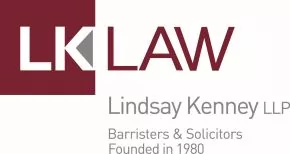- within Real Estate and Construction topic(s)
- with Finance and Tax Executives
- with readers working within the Banking & Credit industries
- within Finance and Banking topic(s)
- with Inhouse Counsel
- with readers working within the Banking & Credit, Healthcare and Technology industries
As housing prices continue to rise, many first-time homebuyers are turning to their parents for help with the down payment. While this kind of support can make homeownership possible, it's important to structure the financial help properly to avoid future legal or tax issues.
In this article, we'll break down the options—loaning a down payment to your child vs. gifting—and highlight what parents need to consider before providing funds for a home purchase.
Gift vs. Loan vs. Advance on Inheritance: What's the Difference?
When parents give money for a home purchase, it's critical to define the intention behind the money that is advanced:
- Unconditional Gift
If you're giving the money outright, with no expectation of repayment, it's considered a gift.
- In family law, a gift can become a shared asset if your child is purchasing the home with a spouse or common-law partner.
- You may be asked by the bank to sign a gift letter confirming that it is not a loan.
- Gifting money may have tax implications, so consult with a financial advisor or accountant.
- Advance on Inheritance
Sometimes parents intend the advanced money to count as part of their child's future inheritance.
- This should be clearly documented and aligned with your estate planning documents (such as a will or trust).
- If not documented properly, it can create confusion or disputes among siblings or other heirs later on.
- Parent Loan for House Down Payment
If you expect to be repaid, the funds should be treated as a loan—with a signed agreement and clearly defined terms. If not documented properly, you may find it difficult to enforce repayment of the loan later on.
Terms to consider for a Parent-to-Child Downpayment Loan
When loaning a down payment to your child, it's essential to formalize the agreement. Here are some key elements to include in your loan agreement or promissory note:
- Principal amount – How much is being loaned?
- Borrowers – Is the loan to your child alone, or also to their spouse/partner?
- Interest rate – Will interest accrue? If so, you may need to consider if you what would be a commercially reasonable rate of interest.
- Repayment terms – Will the borrower have to make regular mortgage payments for the loan?
- Term of the Loan – Will the loan be repayable on demand or does it have a fixed maturity date?
- Security – Will you register a mortgage on title as security for the loan? What collateral does the borrower have to offer as security for the loan?
- Other loan repayment conditions – Under what other conditions would you want to trigger repayment of the loan? For example: Will the loan immediately become repayable upon sale of the home?
Securing the Loan: Why It Matters
A loan that is not properly documented may be difficult to enforce. A mortgage must be registered to provide security for the loan. If the loan is not secured then you run the risk that and other lenders with registered security interests to title to the property will have priority to collect on their debts over your unsecured loan. To protect yourself, you can register a mortgage against the property title, which gives you legal recourse as a secured creditor.
Will the Child Also Get Bank Financing?
If your child is also obtaining a mortgage from a bank, be aware:
- Most lenders require that their mortgage be registered in first position on title.
- Secondary loans or mortgages (like a parent loan) often require the bank's written consent before being registered.
- Violating these terms could affect your child's mortgage approval with the bank or lead to other legal complications.
Tax and Legal Implications of Parent Loans
Before you loan or gift money for a house, you should also consider consulting with:
- An accountant, to understand potential tax consequences (especially if you're not charging interest).
- A real estate lawyer, to properly draft the loan agreement and mortgage (if applicable), and to help with any family law considerations—especially if your child is in a relationship.
For loan or gifts from parents to children in a family law context, please also see our blog regarding Real Estate and Family Law Considerations Parents Loaning or Gifting Money to their Children – LK Law
Final Thoughts: Get Professional Advice
Helping your child with a home down payment—whether as a gift or a loan—is a generous act. But without proper planning and documentation, it can lead to serious legal and financial complications.
To avoid future disputes and protect everyone involved, we strongly recommend consulting with a lawyer.
About Mackrell International – Canada - Lindsay Kenney LLP is a full service business law firm with offices in Vancouver and Langley, BC and a member of Mackrell International. Mackrell International – Canada is comprised of four independent law firms in Alberta, British Columbia, Ontario and Quebec. Each firm is regionally based and well-connected in our communities, an advantage shared with our clients. With close relations amongst our Canadian member firms, we are committed to working with clients who have legal needs in multiple jurisdictions within Canada.
This article is intended to be an overview and is for informational purposes only.


